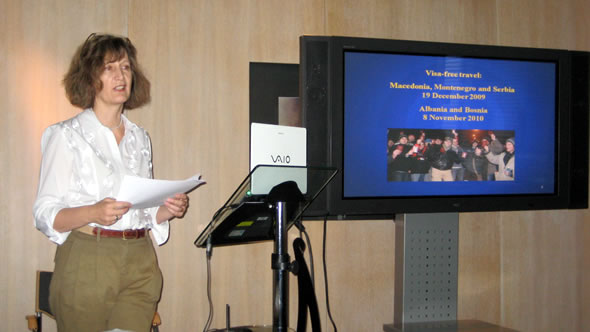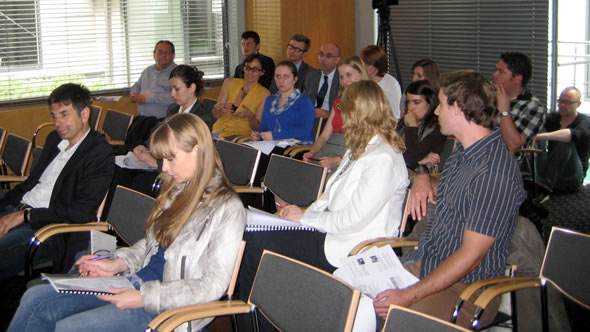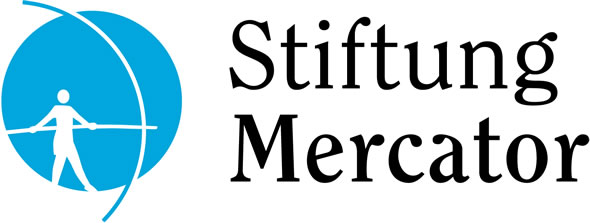
The visa liberalisation process for the Western Balkans was a great success. It was a win-win-win game: the EU has gained in security by turning its neighbours in the Balkans into partners that help protect its external borders. The Western Balkan governments had gained in internal security. Their citizens had gained visa-free travel.
However, following the lifting of the visa requirement for Macedonia, Montenegro and Serbia in December 2009, a rising number of Serbia and Macedonian citizens – mostly Roma – started requesting asylum in the EU in 2010. At the end of the year, it was 17,715 Serbian nationals and 7,550 Macedonian citizens. They had gone overwhelmingly to Belgium, Germany and Sweden. As it would turn out, hardly any of them qualified for international protection – the EU-wide recognition rate in 2010 was below 2%.
As soon as the first wave of asylum seekers hit the EU, its member states were concerned. They demanded action from the Western Balkan governments. They suggested information campaigns, checks at the borders, investigations into possibly deceiving tour operators and bus companies. They put into place a "post-visa liberalisation monitoring mechanism": in order to make sure that the Western Balkan countries continue to implement the visa roadmap reforms, but also to monitor migration flows in order to alert to inflows of unwanted third-country nationals. They pushed the European Commission to propose introducing a fast-track procedure to suspend visa-free travel.
ESI has taken a closer look at the phenomenon of the asylum seekers from Serbia and Macedonia. We have studied the asylum systems of Belgium, Germany and Sweden in order to find out what attract the Balkan asylum seekers. We have examined the measures the EU has demanded from them and concluded that they cannot work. We have also looked for and found a solution how to prevent such situations and presented our findings at a public event in Brussels on 30 June 2011.
ESI is grateful to Stiftung Mercator for supporting ESI's visa-related work for the Schengen White List Project.
- Background: New facts and figures on Western Balkan Asylum Seekers (6 April 2015)
- Balkan Insight, Alexandra Stiglmayer, "Brussels Gets it Wrong on Balkan Asylum Seekers" (6 December 2013)
- Open letter to LIBE committee concerning Balkan asylum issues (21 February 2013)
- Statistical update: asylum seekers from the Western Balkans (15 February 2013)
- ESI report: Saving visa-free travel – Visa, Asylum and the EU roadmap policy (1 January 2013)
- EUobserver, Gerald Knaus and Alexandra Stiglmayer, "Populism in Brussels? How to solve the Balkan asylum crisis" (24 October 2012). Media reactions to this op-ed and ESI's work on visa free travel.
- EUobserver (op-ed), Gerald Knaus and Alexandra Stiglmayer, "Balkan asylum seekers and the spectre of European hypocrisy" (4 October 2011). Also available in Turkish.
- Presentation: Freedom of movement in a populist age: Why Balkan visa liberalisation is (still) a success (30 June 2011)
- Statistical data: Asylum seekers from the Balkans (1 July 2011)
- Amendment introducing the possibility to suspend visa-free travel in a fast-track procedure (effective 9 January 2014)
- European Commission: Fifth Post-Visa Liberalisation Monitoring Report (25 February 2015)
- European Commission: Fourth Post-Visa Liberalisation Monitoring Report (28 November 2013)
- European Commission: Third Post-Visa Liberalisation Monitoring Report (28 August 2012)
- European Commission: Second Post-Visa Liberalisation Monitoring Report (9 December 2011)
- European Commission: Post-Visa Liberalisation Monitoring Report (30 May 2011)
- European Commission: Proposal to introduce the legal possibility to suspend visa-free travel (24 May 2011)
 Alexandra Stiglmayer. Photo: ESI
|
 View of the audience. Photo: ESI
|

